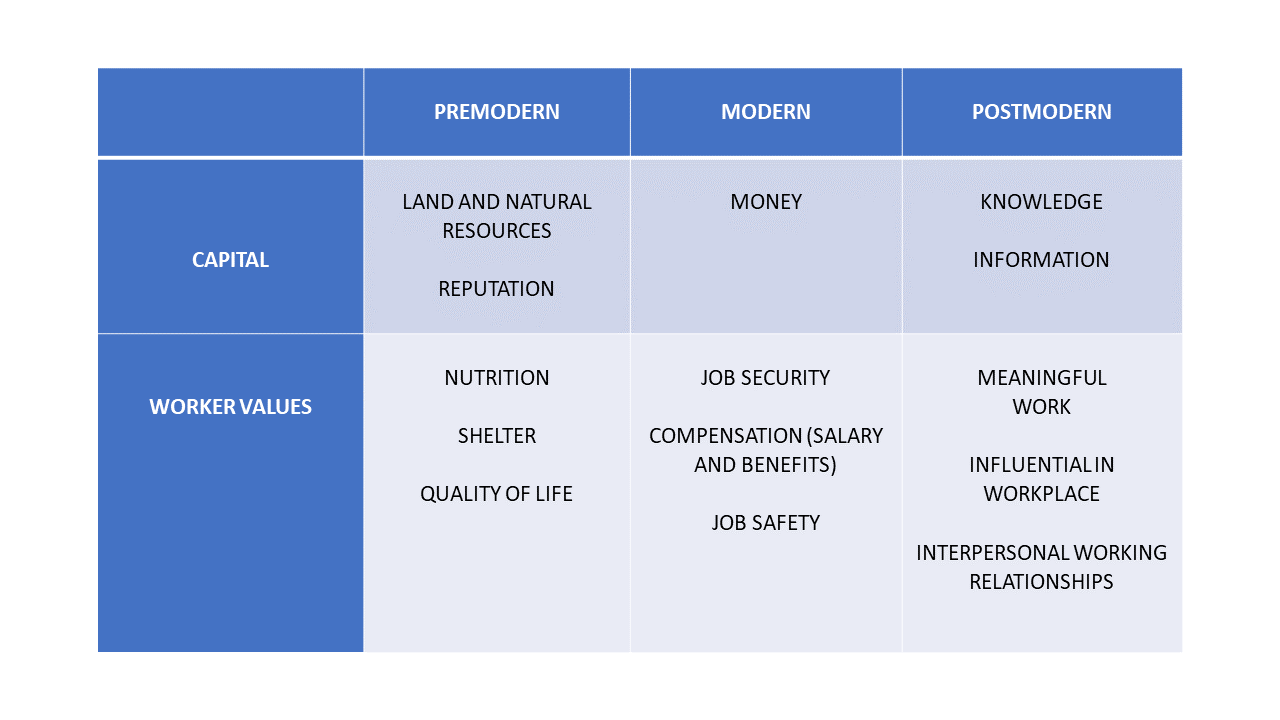
The new capital of the postmodern era is information and expertise. Approval (and its inverse, shame) are components of the new capital. Values of the postmodern worker compliment this new capital. Emphasis is placed on three motivating factors: the meaningful of the work, the ability to influence the work environment and the quality of interpersonal relationships among those working in the organization. The three modern motivators (job security, wages and safety) are still important. They must be addressed in a satisfactory manner prior to addressing postmodern motives. However, assurance regarding job security, wages and health is no longer sufficient. Increasing attention is given to the meaning of work and to recognition derived from colleagues and one’s boss(es) regarding the quality of one’s work. Quality of Work Life programs and Social-Technical Systems dramatically increase worker involvement in the design of production systems and even in daily decision making regarding purchase of equipment, composition of work teams and increased worker safety and security. The new values of the postmodern worker begin to border on the spiritual domain, as greater meaning, purpose and ownership is sought in one’s work and affiliation with an organization.










